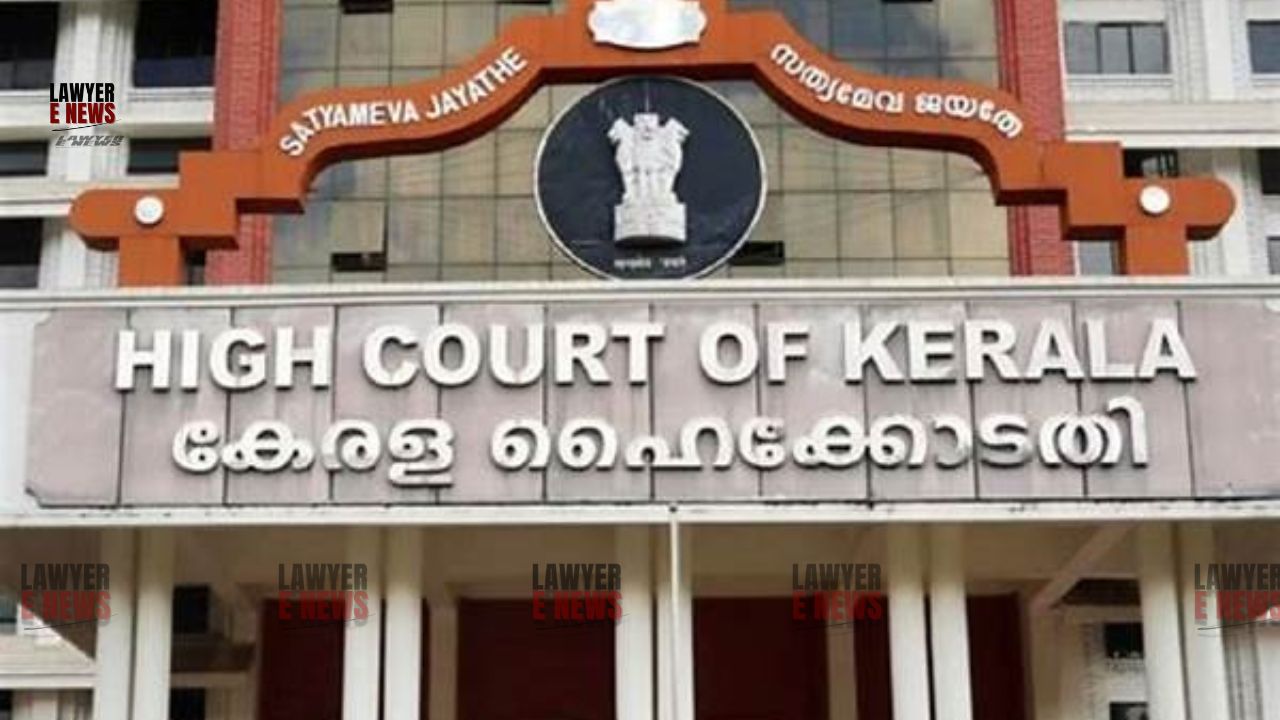-
by Admin
15 February 2026 2:16 AM



Despite the gravity of the charges under Section 302 IPC, the High Court grants bail due to extended judicial custody and lack of trial progress. The Kerala High Court, in its order dated September 6, 2024, granted bail to Sajeev Sreedharan, the accused in the alleged murder of his mother, Thankamma, under Section 302 of the Indian Penal Code (IPC). Justice C.S. Dias highlighted delays in trial proceedings as a primary reason for granting bail, reaffirming the legal principle that "bail is the rule and jail is an exception," especially when trial delays infringe on the fundamental right to personal liberty.
Sajeev Sreedharan was arrested in connection with Crime No. 584/2023, filed at the Idukki Police Station. The prosecution alleged that on July 30, 2023, an altercation erupted between Sajeev and his mother at their residence. Thankamma allegedly fainted after being struck by a tumbler thrown by her son, causing her head to hit the legs of a cot. Though she was rushed to medical facilities, she succumbed to her injuries on August 7, 2023, at the Idukki Medical College, reportedly due to a hemorrhage.
Sajeev was arrested on August 9, 2023, and had remained in judicial custody for over a year. Despite the completion of the investigation and the filing of the final report, the trial court had yet to frame charges, prompting the petitioner to seek bail.
The High Court's primary concern was the extended period of pre-trial custody without any charges being framed. Justice Dias cited Sanjay Chandra v. CBI (2012) and Manish Sisodia v. Directorate of Enforcement (2024), noting the fundamental principle that imprisonment before conviction is punitive. The Court remarked: “Bail is the rule, and jail is the exception,” cautioning lower courts against denying bail as a form of punishment, especially when trials face significant delays.
The trial court, in a report submitted in March 2024, had assured that charges would be framed and the trial would be completed within six months. However, by September 2024, this had not occurred. The High Court emphasized that "the petitioner has a right to life under Article 21 of the Constitution of India," and unnecessary delays violated this right.
The Special Public Prosecutor opposed bail, arguing that the evidence, particularly the post-mortem report, implicated Sajeev in the crime, and that his release could lead to tampering with evidence, given that the witnesses were family members. However, the Court remained unconvinced, holding that these concerns could be addressed through stringent bail conditions. Justice Dias remarked: “The presumption of innocence until proven guilty must be respected, and the petitioner’s prolonged detention, in the absence of any trial progress, is unjustifiable.”
Justice Dias referenced several recent judgments reinforcing the principle of personal liberty. In Javed Gulam Nabi Shaikh v. State of Maharashtra (2024), the Supreme Court observed that, irrespective of the crime's severity, the State should not oppose bail if it cannot ensure a speedy trial. Additionally, in Prabir Purkayastha v. State (NCT of Delhi) (2024), the Supreme Court reaffirmed that life and liberty under Article 21 are sacrosanct, applying equally to citizens and non-citizens alike.
The Court granted bail under stringent conditions to prevent interference with the trial.
The Kerala High Court’s decision underscores the judiciary’s commitment to protecting the fundamental rights of the accused, particularly when trials are delayed. The judgment serves as a reminder that while the seriousness of an offense is crucial, prolonged detention without trial cannot be justified. The case sets a significant precedent for future bail applications in India, reinforcing the judiciary’s emphasis on timely trials and the presumption of innocence.
Date of Decision: September 6, 2024
Sajeev Sreedharan v. State of Kerala
